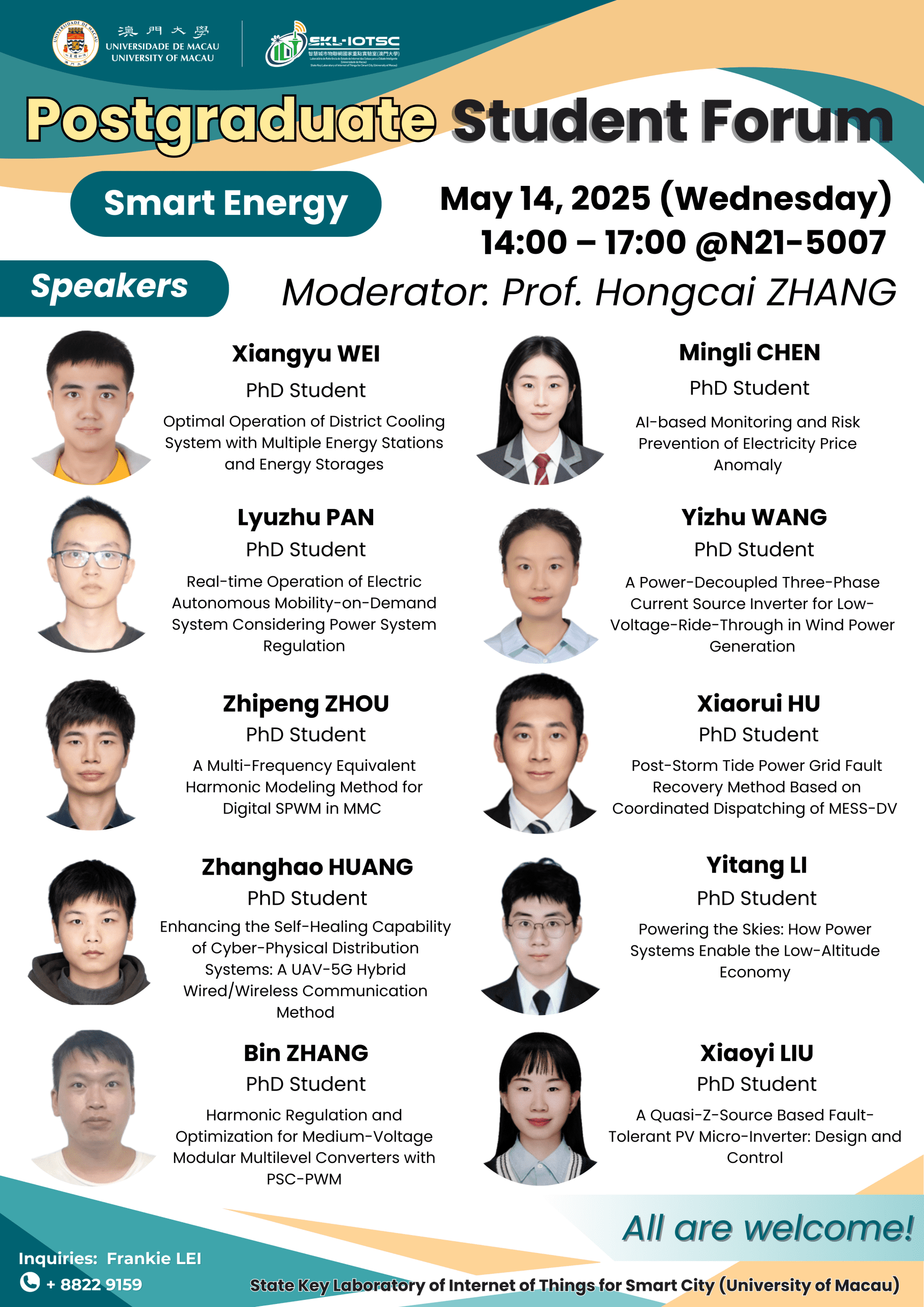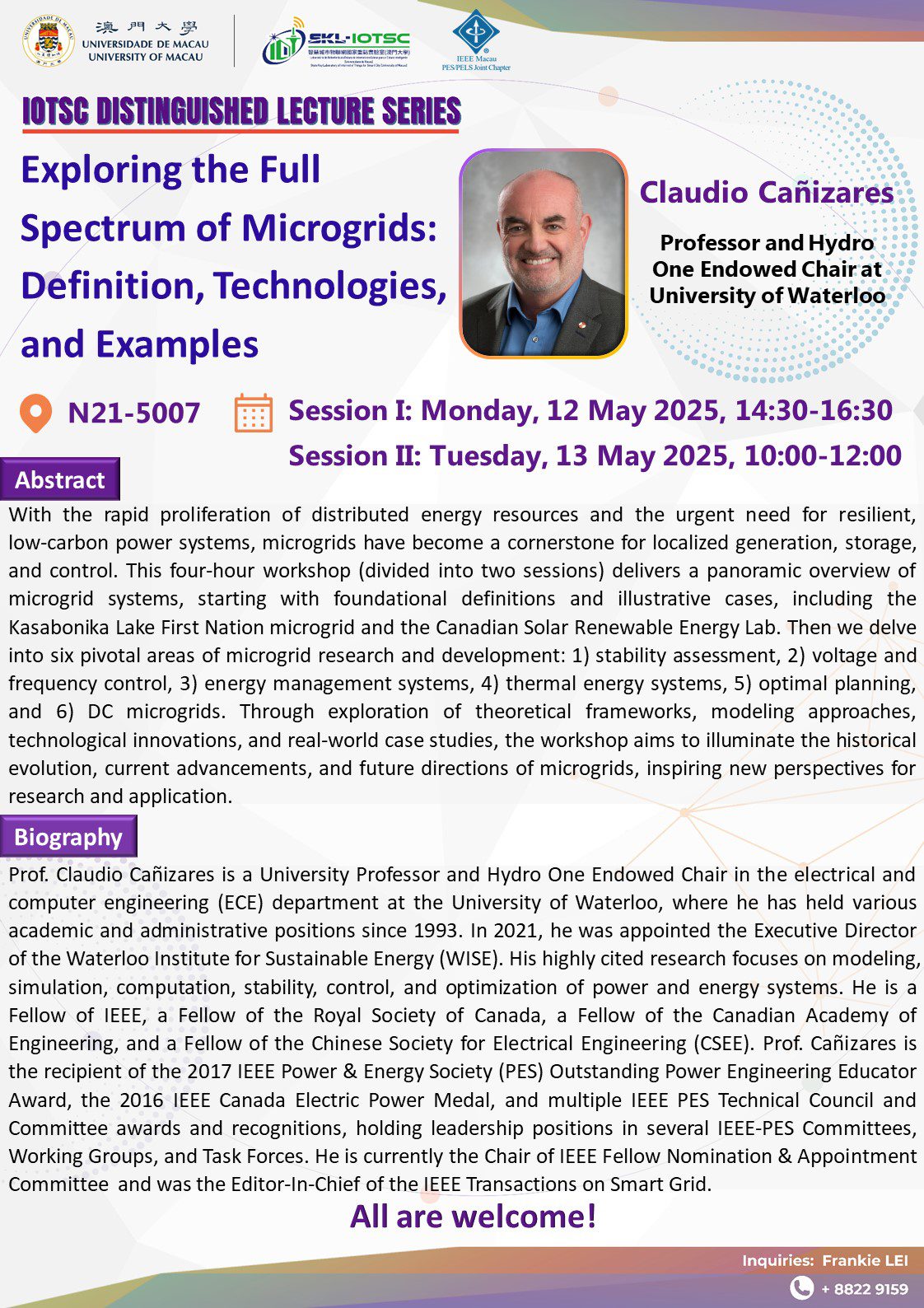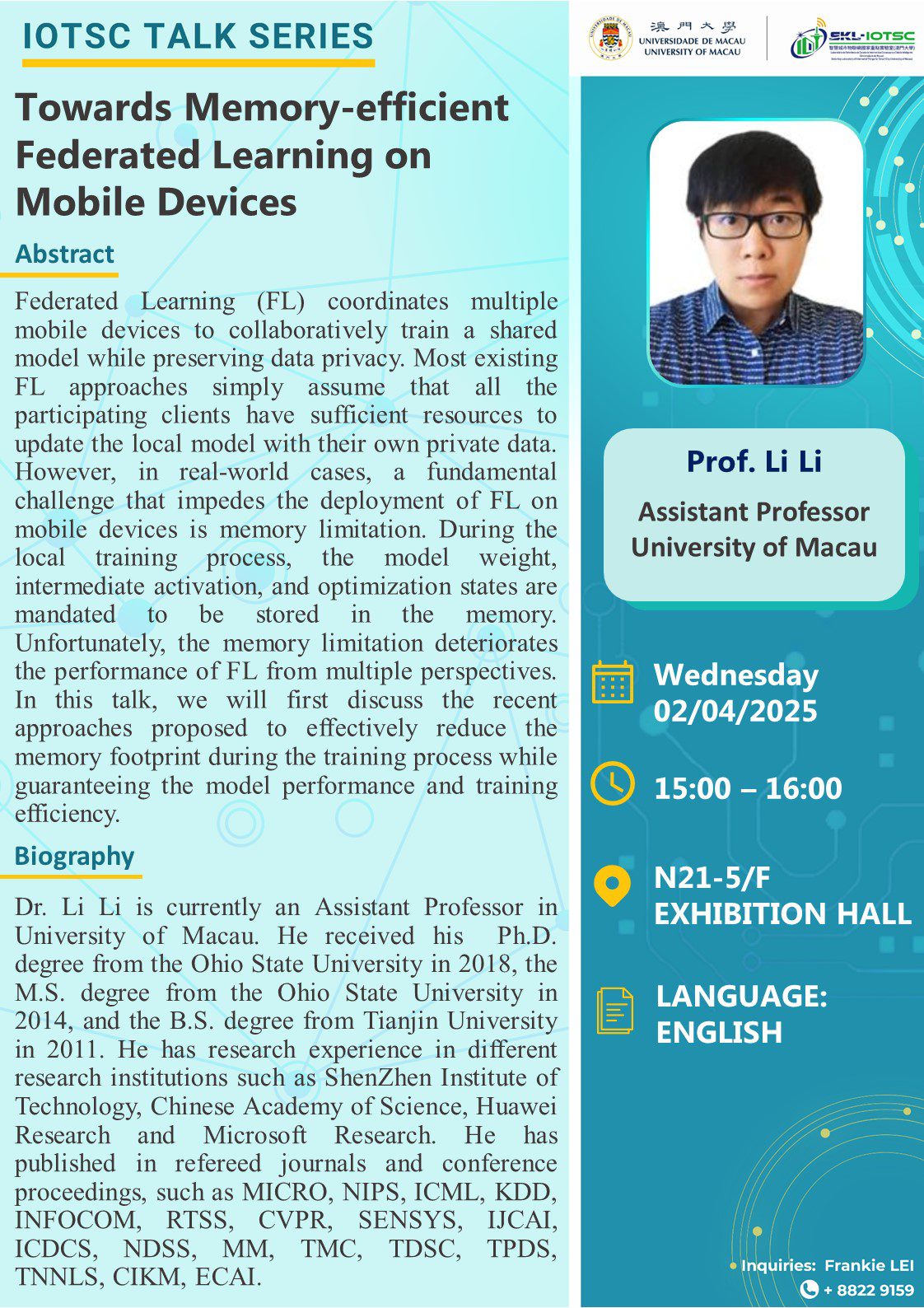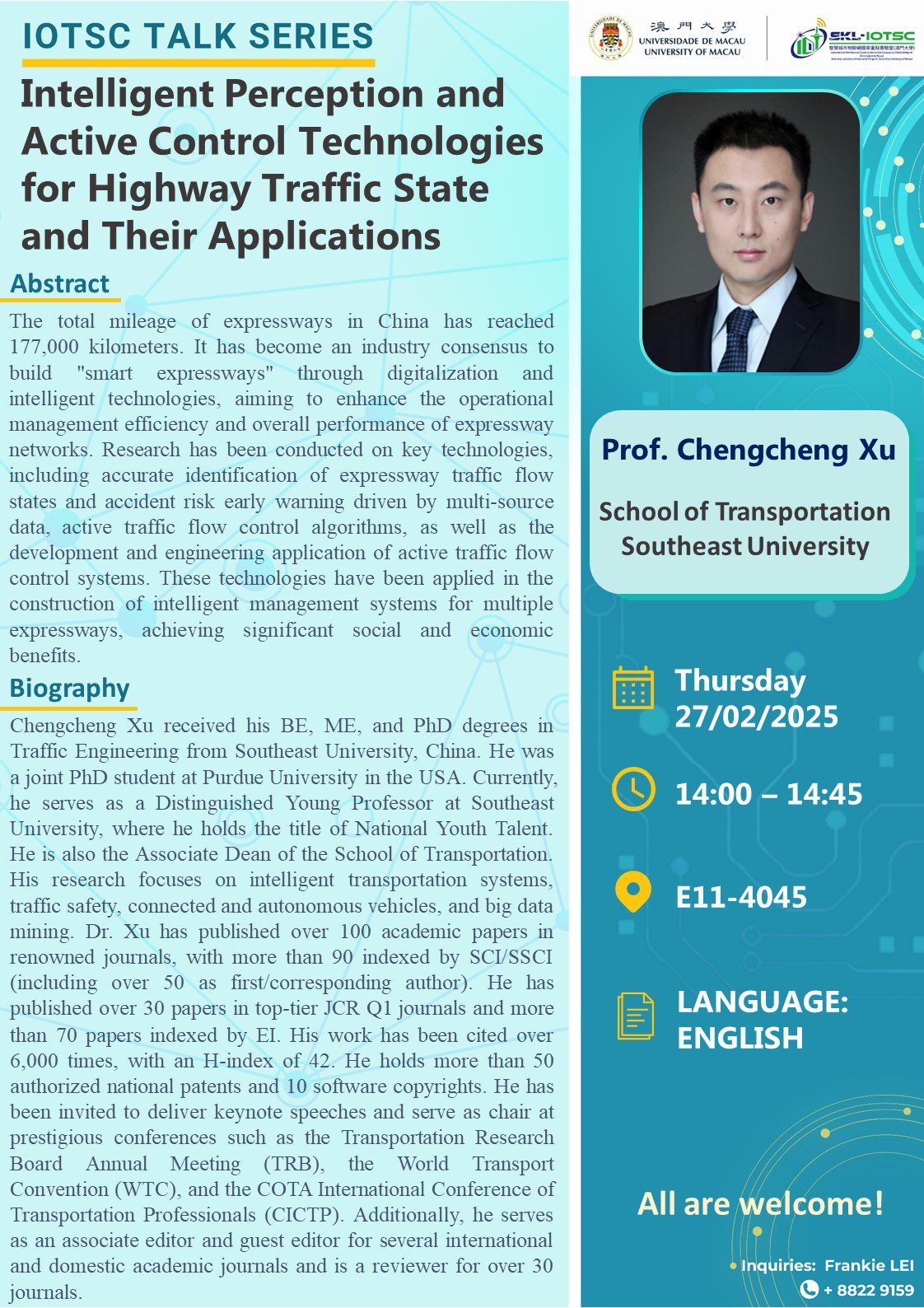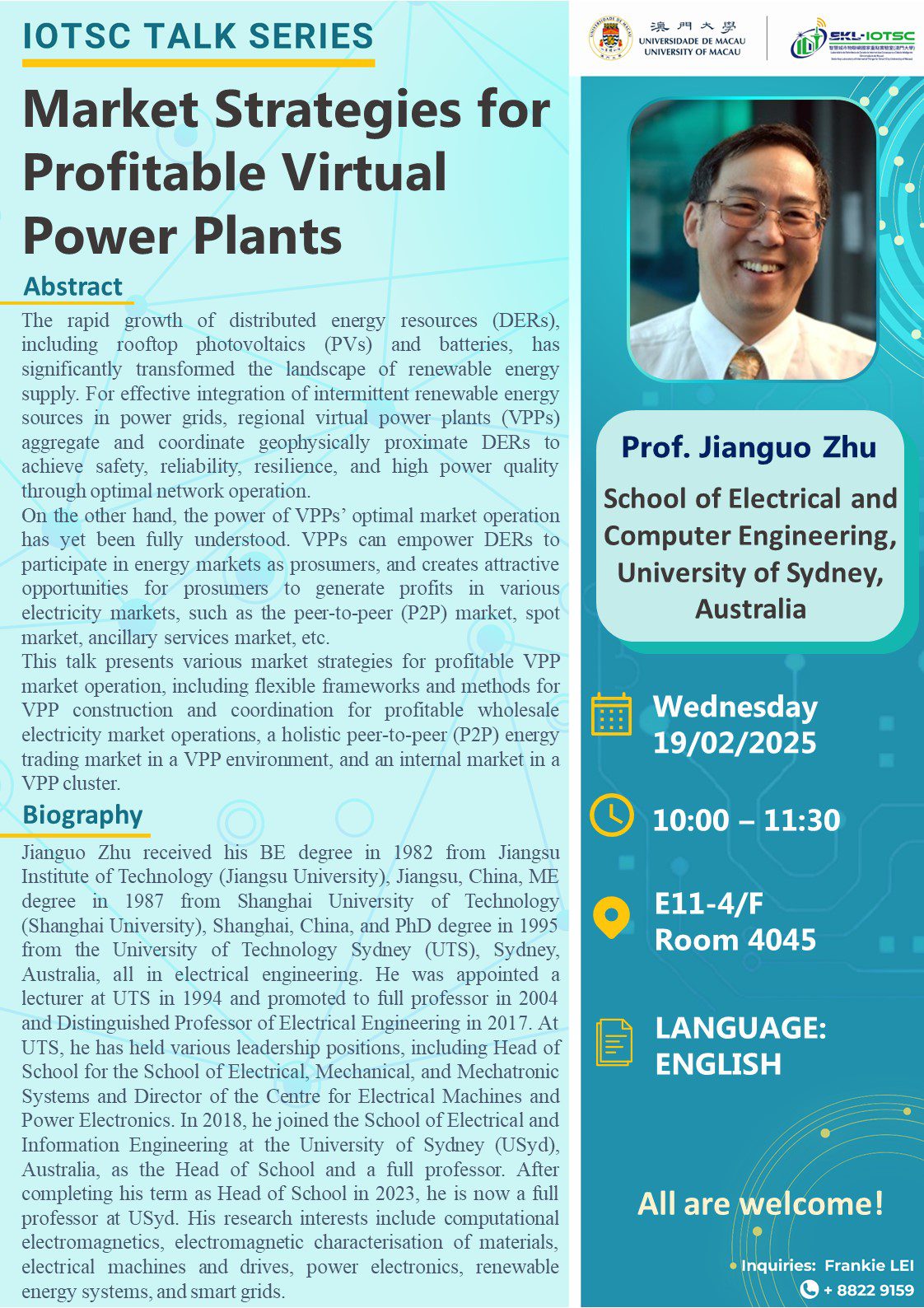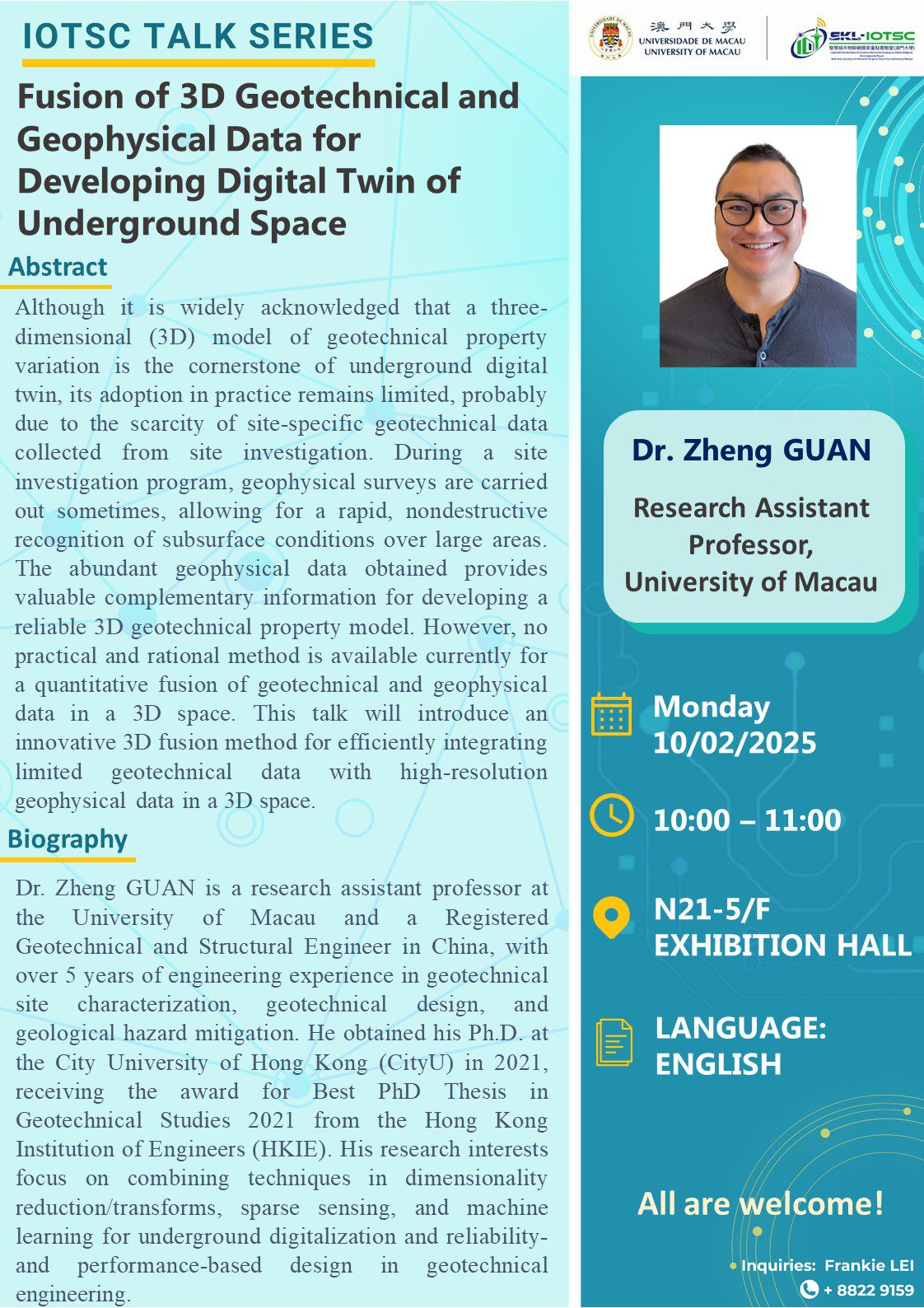IOTSC TALK SERIES: Pinching Antenna Systems (PASS): Architecture Designs, Opportunities, and Outlook
frankielei2025-06-04T12:41:51+08:00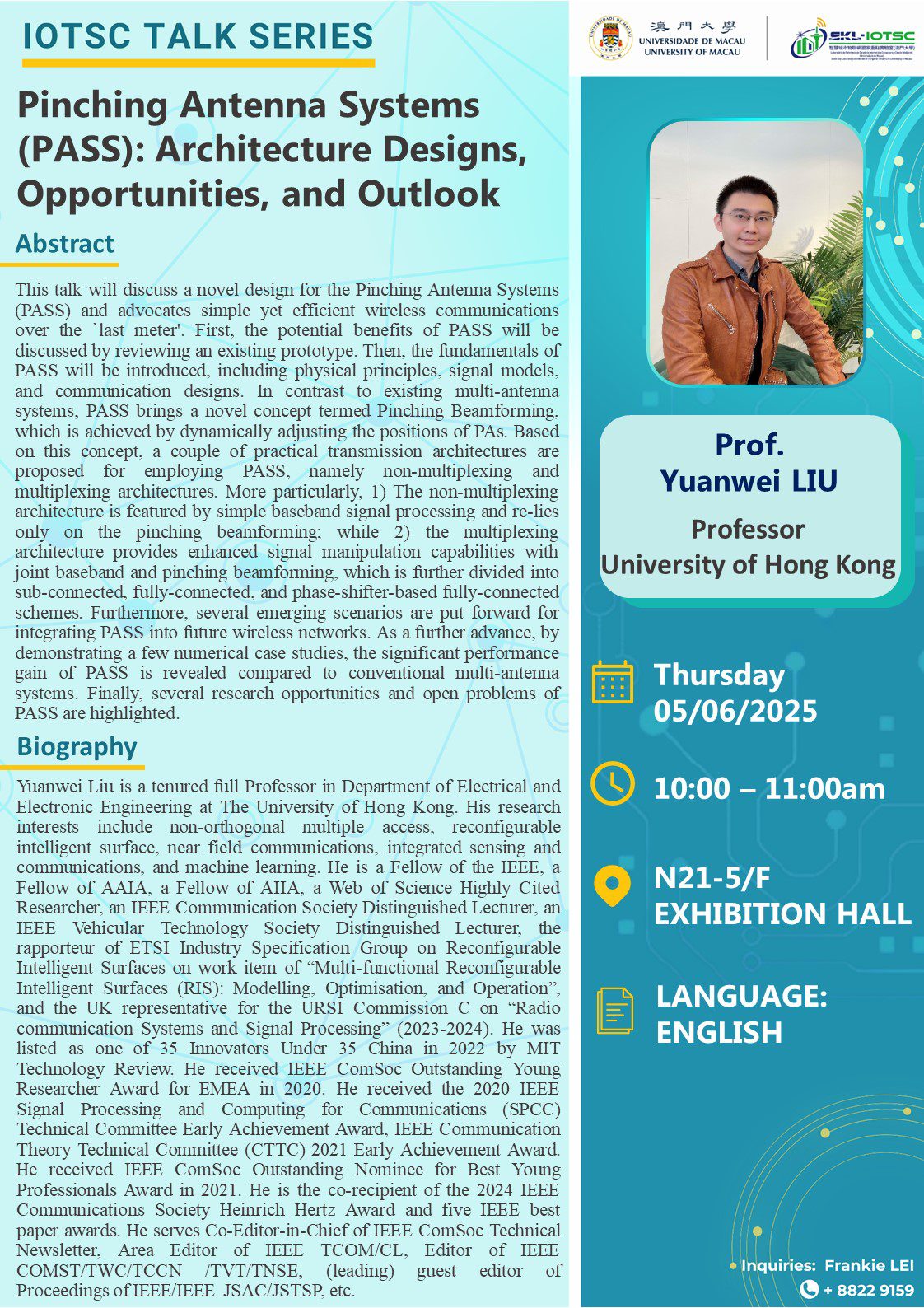
Dear Colleagues and Students,
The State Key Laboratory of Internet of Things for Smart City would like to invite you to join our “IOTSC Talk Series” on 05/06/2025 (Thursday). We are pleased to invite Prof. Yuanwei LIU from University of Hong Kong as the speaker.
Pinching Antenna Systems (PASS): Architecture Designs, Opportunities, and Outlook
Speaker: Yuanwei LIU
Date: 05/06/2025 (Thursday)
Time: 10:00 – 11:00
Language: English
Venue: N21-5007 (Exhibition Hall)
Abstract:
This talk will discuss a novel design for the Pinching Antenna Systems (PASS) and advocates simple yet efficient wireless communications over the `last meter’. First, the potential benefits of PASS will be discussed by reviewing an existing prototype. Then, the fundamentals of PASS will be introduced, including physical principles, signal models, and communication designs. In contrast to existing multi-antenna systems, PASS brings a novel concept termed Pinching Beamforming, which is achieved by dynamically adjusting the positions of PAs. Based on this concept, a couple of practical transmission architectures are proposed for employing PASS, namely non-multiplexing and multiplexing architectures. More particularly, 1) The non-multiplexing architecture is featured by simple baseband signal processing and re-lies only on the pinching beamforming; while 2) the multiplexing architecture provides enhanced signal manipulation capabilities with joint baseband and pinching beamforming, which is further divided into sub-connected, fully-connected, and phase-shifter-based fully-connected schemes. Furthermore, several emerging scenarios are put forward for integrating PASS into future wireless networks. As a further advance, by demonstrating a few numerical case studies, the significant performance gain of PASS is revealed compared to conventional multi-antenna systems. Finally, several research opportunities and open problems of PASS are highlighted.
Speaker’s Bio:
Yuanwei Liu is a tenured full Professor in Department of Electrical and Electronic Engineering at The University of Hong Kong. His research interests include non-orthogonal multiple access, reconfigurable intelligent surface, near field communications, integrated sensing and communications, and machine learning. He is a Fellow of the IEEE, a Fellow of AAIA, a Fellow of AIIA, a Web of Science Highly Cited Researcher, an IEEE Communication Society Distinguished Lecturer, an IEEE Vehicular Technology Society Distinguished Lecturer, the rapporteur of ETSI Industry Specification Group on Reconfigurable Intelligent Surfaces on work item of “Multi-functional Reconfigurable Intelligent Surfaces (RIS): Modelling, Optimisation, and Operation”, and the UK representative for the URSI Commission C on “Radio communication Systems and Signal Processing” (2023-2024). He was listed as one of 35 Innovators Under 35 China in 2022 by MIT Technology Review. He received IEEE ComSoc Outstanding Young Researcher Award for EMEA in 2020. He received the 2020 IEEE Signal Processing and Computing for Communications (SPCC) Technical Committee Early Achievement Award, IEEE Communication Theory Technical Committee (CTTC) 2021 Early Achievement Award. He received IEEE ComSoc Outstanding Nominee for Best Young Professionals Award in 2021. He is the co-recipient of the 2024 IEEE Communications Society Heinrich Hertz Award and five IEEE best paper awards. He serves Co-Editor-in-Chief of IEEE ComSoc Technical Newsletter, Area Editor of IEEE TCOM/CL, Editor of IEEE COMST/TWC/TCCN /TVT/TNSE, (leading) guest editor of Proceedings of IEEE/IEEE JSAC/JSTSP, etc..
For enquiries: Tel: 8822 9159
Email: frankielei@um.edu.mo
Best Regards,
State Key Laboratory of Internet of Things for Smart City
